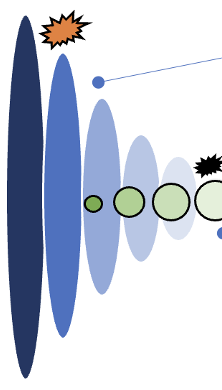
CARRAS Michelle
Recommendations: 0
Reviews: 3
Reviews: 3
Life Thinning and Gaming Disorder: A Longitudinal Qualitative Registered Report
How do intensive gaming experiences evolve over time in clinical and non-clinical contexts?
Recommended by Chris Chambers based on reviews by Peter Branney and Michelle Carras
Reconstructing Gaming Disorder: A Taxonomy by Registered Report
How can the experiences of those who engage in video games in healthy and unhealthy ways be systematically organised?
Recommended by Zoltan Dienes based on reviews by Michelle Carras, Lukas J. Gunschera and Christopher FergusonURL to the preregistered Stage 1 protocol: https://osf.io/ekm8x
Level of bias control achieved: Level 4. At least some of the data/evidence that will be used to answer the research question already exists AND is accessible in principle to the authors (e.g. residing in a public database or with a colleague) BUT the authors certify that they have not yet accessed any part of that data/evidence
List of eligible PCI RR-friendly journals:
Phenomenological Strands for Gaming Disorder and Esports Play: A Qualitative Registered Report
How does the phenomenology of "gaming disorder" differ from intensive but non-pathological videogame play?
Recommended by Chris Chambers based on reviews by Malte Elson, Peter Branney and Michelle CarrasIn this Stage 1 Registered Report, Karhulahti and colleagues (2021) propose a qualitative, interview-based study of videogame play, with the central aim to understand key phenomological differences between gaming behaviour that is associated with vs. without health problems. This question is particularly important given the recent inclusion of "gaming disorder" in the WHO's International Statistical Classification of Diseases and Related Health Problems (ICD).
In recent years, the validity of "gaming disorder" as an identifiable mental illness has been controversial (e.g. Van Rooij et al, 2018), as has the debate concerning purported harms or benefits of gaming for mental health. This Stage 1 manuscript describes a rigorous qualitative investigation that should provide new insights on this question, and will also include a longitudinal component to examine changes in phenomonology over time, as well as an examination of the extent to which the phenomonology of gaming is reflected in the experiences of medical experts such as doctors, nurses, and therapists who have worked with gaming-related health problems.
More broadly, the manuscript breaks new ground for Registered Reports, being one of the first to focus on qualitative methods, while also making use of the Programmatic submission track in which the approved Stage 1 manuscript is intended to produce two Stage 2 manuscripts focusing on different elements of the project.
Three expert reviewers with a variety of field-specialist and qualitative methodological expertise assessed the Stage 1 manuscript over two rounds of in-depth review. Following revision, the reviewers and recommender agreed that the manuscript met the Stage 1 criteria and therefore awarded in-principle acceptance (IPA).
URL to the preregistered Stage 1 protocol: https://osf.io/a2rwg
Level of bias control achieved: Level 4. At least some of the data/evidence that will be used to answer the research question already exists AND is accessible in principle to the authors (e.g. residing in a public database or with a colleague), BUT the authors certify that they have not yet accessed any part of that data/evidence.
List of eligible PCI RR-friendly journals:
References
- Karhulahti V-M, Siutila M, Vahlo J, Koskimaa R (2021) Phenomenological Strands for Gaming Disorder and Esports Play: A Qualitative Registered Report. PsyArXiv preprints, Stage 1 preregistration, in principle acceptance of version 1 by Peer Community in Registered Reports. https://doi.org/10.31234/osf.io/q53jz
- van Rooij AJ, Ferguson CJ, Carras MC, Kardefelt-Winther D, Shi J, Aarseth E, Bean AM, Bergmark KH, Brus A, Coulson M, Deleuze J, Dullur P, Dunkels E, Edman J, Elson M, Etchells PJ, Fiskaali A, Granic I, Jansz J, Karlsen F, Kaye LK, Kirsh B, Lieberoth A, Markey P, Mills KL, Nielsen RKL, Orben A, Poulsen A, Prause N, Prax P, Quandt T, Schimmenti A, Starcevic V, Stutman G, Turner NE, Looy J van, Przybylski AK (2018) A weak scientific basis for gaming disorder: Let us err on the side of caution. Journal of Behavioral Addictions, 7, 1–9. https://doi.org/10.1556/2006.7.2018.19
